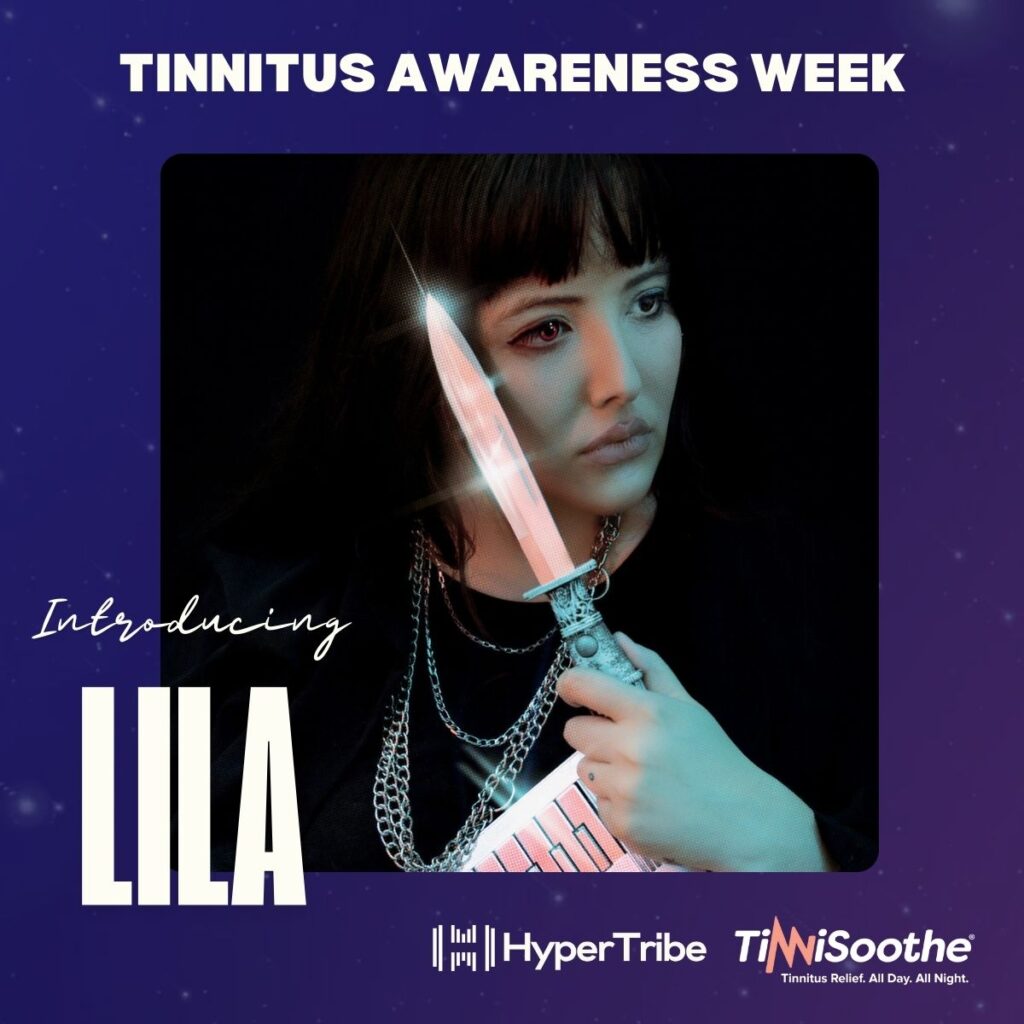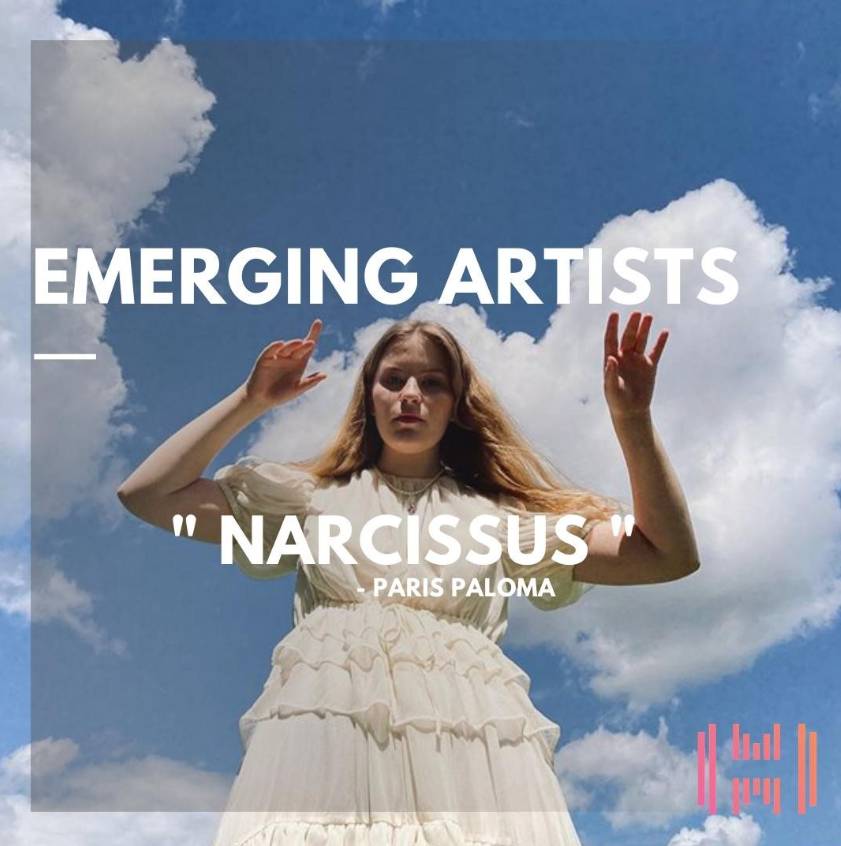At HyperTribe, we’re proud to share the stories of musicians who are reshaping the conversation around hearing health. As part of our collaboration with TinniSoothe, we’re spotlighting five artists who live with tinnitus, exploring how it has shaped their journey. Today, we highlight Lila Tirando a Violeta, an experimental music producer and vocalist originally from Montevideo, Uruguay, now based in Ireland.
A Musical Evolution from Experimentation to Innovation
Lila’s journey into music started with curiosity. “I started playing synthesizer over a decade ago, just messing with sounds, twisting them into something unrecognizable,” she recalls. “I wanted to see how far I could push texture and rhythm.” This experimental drive led her to self-release music before securing releases on acclaimed labels like N.A.A.F.I and Hyperdub Records.
Her influences are broad, spanning post-punk, folk, new wave, and electronic music. “Even though my sound might not immediately suggest it, I’ve always loved artists like Brian Eno, Kate Bush, Aphex Twin, and Cocteau Twins,” she says. Over the years, she has refined her style, incorporating Latin American rhythms, hyper-processed vocals, and generative composition techniques. “I’m always balancing the alien with the familiar,” she explains.

Living with Pulsatile Tinnitus
Lila was diagnosed with pulsatile tinnitus five years ago as a side effect of a neurological condition. “At first, it wrecked me,” she admits. “I could barely sleep. I stopped playing live music for a while and only worked with headphones.” The overwhelming sound threatened her connection to music, but over time, she adapted.
“Tinnitus made me rethink my entire creative process. I struggled to finish tracks because the constant pulsating sound made it hard to focus. It felt like my own music was being drowned out,” she says. But she refused to let it define her. By adjusting her workflow and developing strategies to manage the anxiety that came with it, Lila gradually reclaimed her creative space. “Now, it’s a part of my life, but it doesn’t control me.”
The Music Industry’s Role in Hearing Health
Lila is passionate about raising awareness for tinnitus and believes the music industry must do more to protect musicians. “Venues, festivals, and promoters need to make high-fidelity earplugs accessible—if not free—for artists and audiences,” she argues. “Live sound engineers and mastering technicians should rethink volume levels instead of just cranking everything up.”
Beyond prevention, Lila advocates for support networks for artists who already live with hearing conditions. “Tinnitus isn’t just a minor inconvenience—it affects focus, sleep, and emotional well-being. The mental toll can be just as challenging as the physical aspect,” she says. “We need to normalize these conversations.”
See more of Lila’s music here.
Art as an Outlet: Turning Tinnitus into Sound
Rather than seeing tinnitus as an obstacle, Lila has incorporated it into her music. “I’ve actually sampled my tinnitus in a few songs,” she reveals. “There are pulsating sounds in my tracks that mimic how it feels—what’s interesting is that most listeners don’t even notice. They think it’s just another ambient effect.”
Her upcoming album, set for release via Berlin label Unguarded, continues this creative exploration. “It’s a collection of experimental dance club tracks that merge my memories of South America with my present-day reality,” she says. The album reflects her longtime love of sci-fi and post-punk while pushing the boundaries of electronic music.
Hope and Advice for Fellow Musicians
Lila acknowledges that learning to live with tinnitus is a journey. “It sounds like a cliché, but your body does adjust. Over time, you stop noticing it as much,” she says. “The worst thing you can do is panic—it makes the frequency or pulsation feel even more intense. Be patient with yourself.”
She also advises against doom-scrolling through online forums. “There’s so much negativity online. If you focus too much on the worst-case scenarios, it will consume you. Instead, look for solutions, experiment with sound therapy, and prioritize mental well-being.”
Being Part of the Campaign
Lila is thrilled to contribute to Tinnitus Week and help bring attention to an often-overlooked issue. “Musicians rely on their ears more than anything, but so many of us take our hearing for granted. We need to be proactive about protecting it,” she says.
She is also grateful for innovative solutions like TinniSoothe. “For me, it’s been a game-changer. It helps soothe the pulsations, which is essential for my mental health. Dealing with tinnitus can feel overwhelming, but knowing that there are tools available makes a huge difference.”
Looking to the Future
With a new album on the horizon and a deeper understanding of how to navigate tinnitus, Lila remains committed to her craft. “Sound is everything to me, and I refuse to let tinnitus take that away,” she says. “I want this campaign to encourage people to take care of their ears. Because once you damage your hearing, there’s no going back.”
Through this campaign, HyperTribe and TinniSoothe are proud to stand with Lila and all musicians navigating the challenges of tinnitus. Stay tuned for more stories and join us in advocating for hearing health in the music industry.
See more of Lila’s music here.



